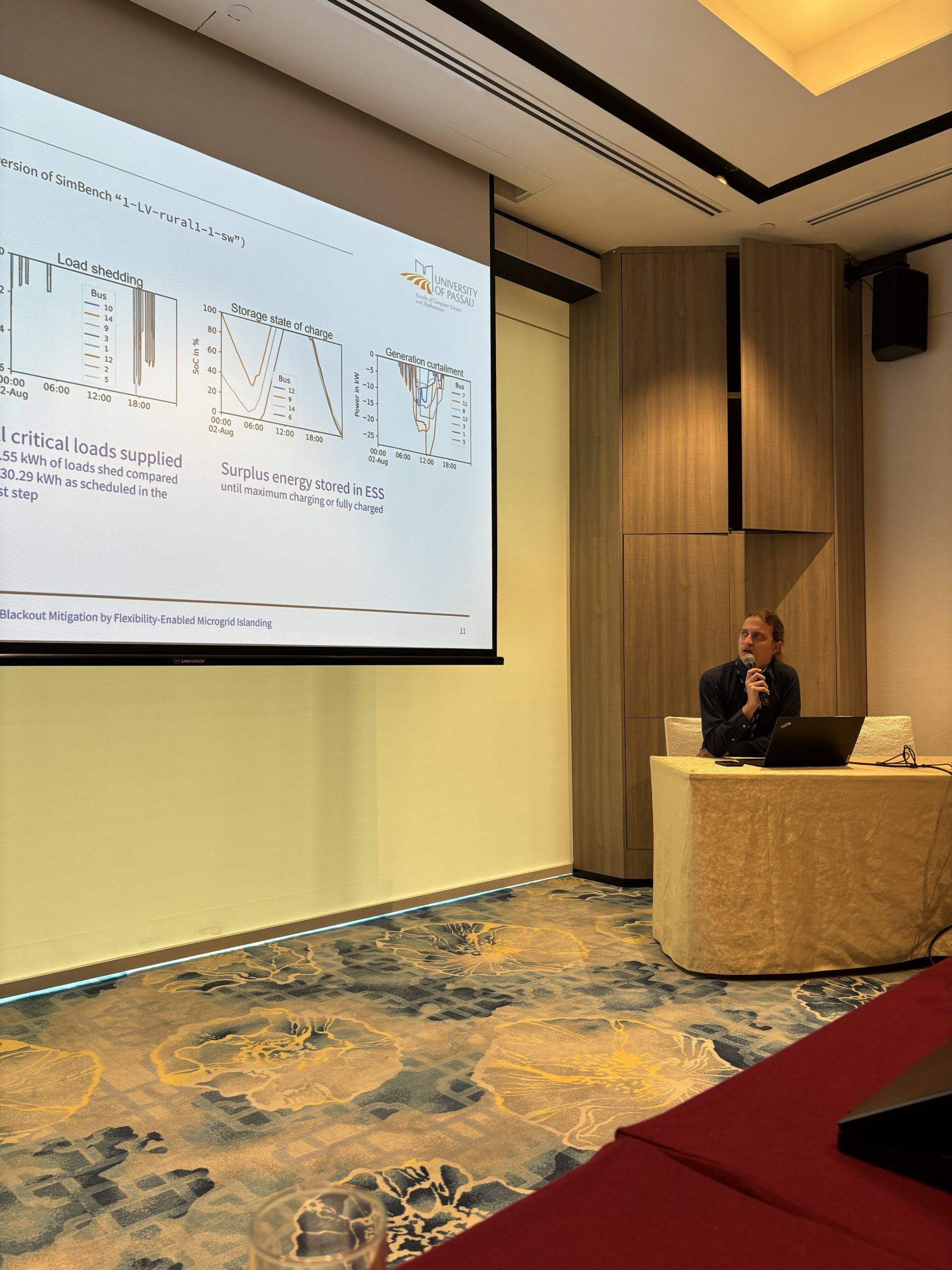

LocalRES was at ACM e-Energy 2024!
Philipp Danner from Uni Passau gave a workshop presentation on our two step blackout strategies on behalf of LocalRES at the 15th ACM International Conference on Future and Sustainable Energy Systems.
Blackouts are rare yet disastrous events with high impact on the system and its users. With the help of more distributed and controllable generation and sector-coupled flexibility, microgrids could be prepared to operate in islanded mode during a blackout.
The paper on which this workshop was based goes over LocalRES’ blackout strategies as a way to mitigate the worst case of system anomaly in power systems – a wide-area blackout. Focus was on the second step with the distributed microgrid control to avoid single point of failures making the approach more robust.
The method proposed in the paper includes a proactive flexibility reservation step, which derives a minimal reservation schedule for microgrid resources under uncertainty considering related operational costs. As a second step, during a blackout, a fully distributed control is implemented to maximize the usage of available resources based on a sequence of max and min-consensus rounds. Load shedding can be reduced by 40% compared to the forecast value. A hardware-in-the loop simulation of a grid-forming converter further showed a fast convergence toward the optimal operation point.
The workshop was joined by more than 30 international experts in the field of power systems, distributed communication and cybersecurity – leading to a fruitful discussion on strengths, potential limits and improvements.

